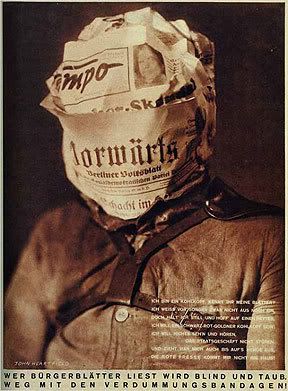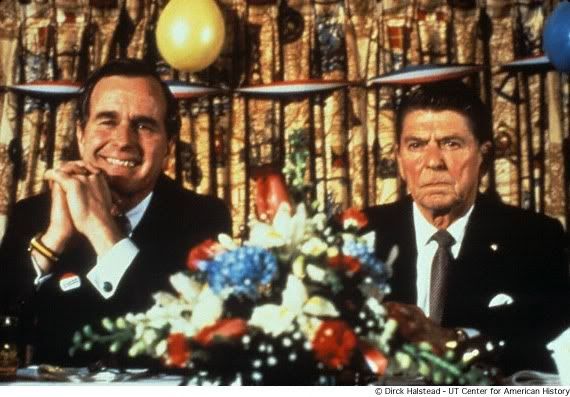Welcome to DU!
The truly grassroots left-of-center political community where regular people, not algorithms, drive the discussions and set the standards.
Join the community:
Create a free account
Support DU (and get rid of ads!):
Become a Star Member
Latest Breaking News
General Discussion
The DU Lounge
All Forums
Issue Forums
Culture Forums
Alliance Forums
Region Forums
Support Forums
Help & Search
General Discussion
Related: Editorials & Other Articles, Issue Forums, Alliance Forums, Region ForumsCounterterrorism Conference Kicks Out Intercept Journalist

Counterterrorism Conference Kicks Out Intercept Journalist
BY RYAN GALLAGHER
The Intercept, April 22, 2015
LONDON — “We’re not banning you, we’re just not allowing you access,” Mike Oldknow, the security chief, told me Wednesday, when I showed up to attend one of the world’s largest annual counterterrorism events.
The event, the Counter Terror Expo, is held in a large conference hall in Kensington on the west side of London. Hundreds of companies and government officials come together there every year to discuss the latest developments in the broad field of national security.
It was an unexpected situation at a gathering I had covered several times in the past. As in previous years, I registered in advance for press accreditation and, as normal, had my application approved. “Please bring your badge reference number and photo ID,” I was told in an email. “Hope you have a great show.”
SNIP...
The incident felt symptomatic of the excessive secrecy plaguing the counterterrorism industry, which is worth tens of billions of dollars every year but operates almost entirely in the shadows. The only thing that seems to truly terrorize the industry is the prospect of transparency and public accountability.
Welcomed with open arms are the journalists who write puff pieces about the latest counterterror technology for defense industry magazines. But veer too far from that script, expose the industry to some proper scrutiny, and you can expect to be kicked out the door.
SOURCE: https://firstlook.org/theintercept/2015/04/22/counter-terror-expo-london-banned/
InfoView thread info, including edit history
TrashPut this thread in your Trash Can (My DU » Trash Can)
BookmarkAdd this thread to your Bookmarks (My DU » Bookmarks)
4 replies, 769 views
ShareGet links to this post and/or share on social media
AlertAlert this post for a rule violation
PowersThere are no powers you can use on this post
EditCannot edit other people's posts
ReplyReply to this post
EditCannot edit other people's posts
Rec (16)
ReplyReply to this post
4 replies
 = new reply since forum marked as read
Highlight:
NoneDon't highlight anything
5 newestHighlight 5 most recent replies
= new reply since forum marked as read
Highlight:
NoneDon't highlight anything
5 newestHighlight 5 most recent replies
Counterterrorism Conference Kicks Out Intercept Journalist (Original Post)
Octafish
Apr 2015
OP
Octafish
(55,745 posts)1. Kick for the Uses of Counterterrorism 1981 to Who Knows When Kick.
Somewhere in Detroit, 1980 GOP Convention:

After the election, the relationship really, ah, evolved:
George Bush Takes Charge
The Uses of "Counter-Terrorism"
By Christopher Simpson
Covert Action Quarterly 58
A paper trail of declassified documents from the Reagan‑Bush era yields valuable information on how counter‑terrorism provided a powerful mechanism for solidifying Bush's power base and launching a broad range of national security initiatives.
During the Reagan years, George Bush used "crisis management" and "counter‑terrorism" as vehicles for running key parts of the clandestine side of the US government.
Bush proved especially adept at plausible denial. Some measure of his skill in avoiding responsibility can be taken from the fact that even after the Iran‑Contra affair blew the Reagan administration apart, Bush went on to become the "foreign policy president," while CIA Director William Casey, by then conveniently dead, took most of the blame for a number of covert foreign policy debacles that Bush had set in motion.
The trail of National Security Decision Directives (NSDDS) left by the Reagan administration begins to tell the story. True, much remains classified, and still more was never committed to paper in the first place. Even so, the main picture is clear: As vice president, George Bush was at the center of secret wars, political murders, and America's convoluted oil politics in the Middle East.
SNIP...
Reagan and the NSC also used NSDDs to settle conflicts among security agencies over bureaucratic turf and lines of command. It is through that prism that we see the first glimmers of Vice President Bush's role in clandestine operations during the 1980s.
CONTINUED...
More details from the good professor:
EXCERPT...
NSDD 159. MANAGEMENT OF U.S. COVERT OPERATIONS, (TOP SECRET/VEIL‑SENSITIVE), JAN. 18,1985
The Reagan administration's commitment to significantly expand covert operations had been clear since before the 1980 election. How such operations were actually to be managed from day to day, however, was considerably less certain. The management problem became particularly knotty owing to legal requirements to notify congressional intelligence oversight committees of covert operations, on the one hand, and the tacitly accepted presidential mandate to deceive those same committees concerning sensitive operations such as the Contra war in Nicaragua, on the other.
The solution attempted in NSDD 159 was to establish a small coordinating committee headed by Vice President George Bush through which all information concerning US covert operations was to be funneled. The order also established a category of top secret information known as Veil, to be used exclusively for managing records pertaining to covert operations.
[font color="red"]The system was designed to keep circulation of written records to an absolute minimum while at the same time ensuring that the vice president retained the ability to coordinate US covert operations with the administration's overt diplomacy and propaganda.
Only eight copies of NSDD 159 were created. The existence of the vice president's committee was itself highly classified.[/font color] The directive became public as a result of the criminal prosecutions of Oliver North, John Poindexter, and others involved in the Iran‑Contra affair, hence the designation "Exhibit A" running up the left side of the document.
CONTINUED...
CovertAction Quarterly no 58 Fall 1996 pp31-40.
This all matters because there's a steady bloody red line from 1981 to the present day few write about. More would, were the nation's news media honest and lived up to their constitutional mandate.

After the election, the relationship really, ah, evolved:
George Bush Takes Charge
The Uses of "Counter-Terrorism"
By Christopher Simpson
Covert Action Quarterly 58
A paper trail of declassified documents from the Reagan‑Bush era yields valuable information on how counter‑terrorism provided a powerful mechanism for solidifying Bush's power base and launching a broad range of national security initiatives.
During the Reagan years, George Bush used "crisis management" and "counter‑terrorism" as vehicles for running key parts of the clandestine side of the US government.
Bush proved especially adept at plausible denial. Some measure of his skill in avoiding responsibility can be taken from the fact that even after the Iran‑Contra affair blew the Reagan administration apart, Bush went on to become the "foreign policy president," while CIA Director William Casey, by then conveniently dead, took most of the blame for a number of covert foreign policy debacles that Bush had set in motion.
The trail of National Security Decision Directives (NSDDS) left by the Reagan administration begins to tell the story. True, much remains classified, and still more was never committed to paper in the first place. Even so, the main picture is clear: As vice president, George Bush was at the center of secret wars, political murders, and America's convoluted oil politics in the Middle East.
SNIP...
Reagan and the NSC also used NSDDs to settle conflicts among security agencies over bureaucratic turf and lines of command. It is through that prism that we see the first glimmers of Vice President Bush's role in clandestine operations during the 1980s.
CONTINUED...
More details from the good professor:
EXCERPT...
NSDD 159. MANAGEMENT OF U.S. COVERT OPERATIONS, (TOP SECRET/VEIL‑SENSITIVE), JAN. 18,1985
The Reagan administration's commitment to significantly expand covert operations had been clear since before the 1980 election. How such operations were actually to be managed from day to day, however, was considerably less certain. The management problem became particularly knotty owing to legal requirements to notify congressional intelligence oversight committees of covert operations, on the one hand, and the tacitly accepted presidential mandate to deceive those same committees concerning sensitive operations such as the Contra war in Nicaragua, on the other.
The solution attempted in NSDD 159 was to establish a small coordinating committee headed by Vice President George Bush through which all information concerning US covert operations was to be funneled. The order also established a category of top secret information known as Veil, to be used exclusively for managing records pertaining to covert operations.
[font color="red"]The system was designed to keep circulation of written records to an absolute minimum while at the same time ensuring that the vice president retained the ability to coordinate US covert operations with the administration's overt diplomacy and propaganda.
Only eight copies of NSDD 159 were created. The existence of the vice president's committee was itself highly classified.[/font color] The directive became public as a result of the criminal prosecutions of Oliver North, John Poindexter, and others involved in the Iran‑Contra affair, hence the designation "Exhibit A" running up the left side of the document.
CONTINUED...
CovertAction Quarterly no 58 Fall 1996 pp31-40.
This all matters because there's a steady bloody red line from 1981 to the present day few write about. More would, were the nation's news media honest and lived up to their constitutional mandate.
hootinholler
(26,449 posts)2. I wonder what was said in the come to jesus conversation
Right before that photo was taken.
Octafish
(55,745 posts)3. ''We're gonna kick up the morphine drip again, Ronnie.'' -- Poppy the Pusher
"Well, uh. OK." -- Pruneface the Perplexed
Seriously. Larry King interviewed Poppy Bush and talked about drugs in a subjective manner off-air.
It's one of my favorite Larry King moments, Larry's talking to then-president George H.W. Bush about drugs. They're off-air, but the satellite feed is picking up their conversation. At the time, Poppy was about four days away from losing his re-election bid. From the documentary "Spin," the discussion begins at about the 48-min. mark:
George H.W. Bush - "You mean for sleeping or decongestant? Great."
"Spin" by Brian Springer, BTW, is an outstanding view behind the facade of the television screen and the characters it portrays.
Its perspective is scarier than most any movie I know.
"Competence is the creed of the technocrat who makes sure the gears mesh but doesn't for a second understand the magic of the machine." -- George HW Bush, RNC acceptance speech, August 18, 1988
SOURCE: http://www.notable-quotes.com/b/bush_george_h_w.html
woo me with science
(32,139 posts)4. K&R